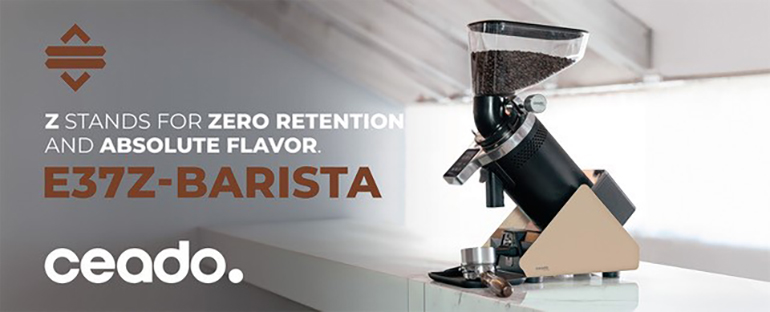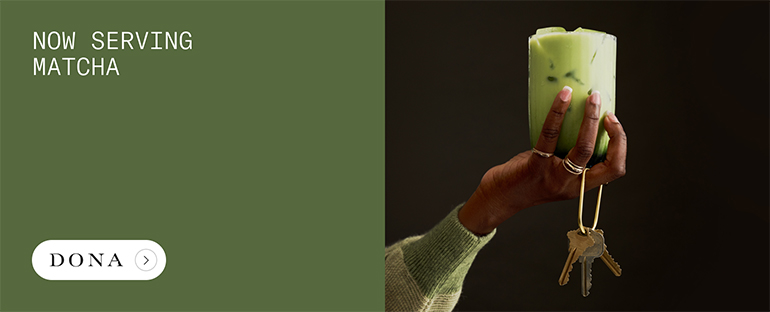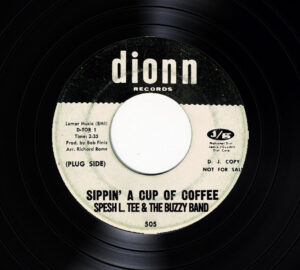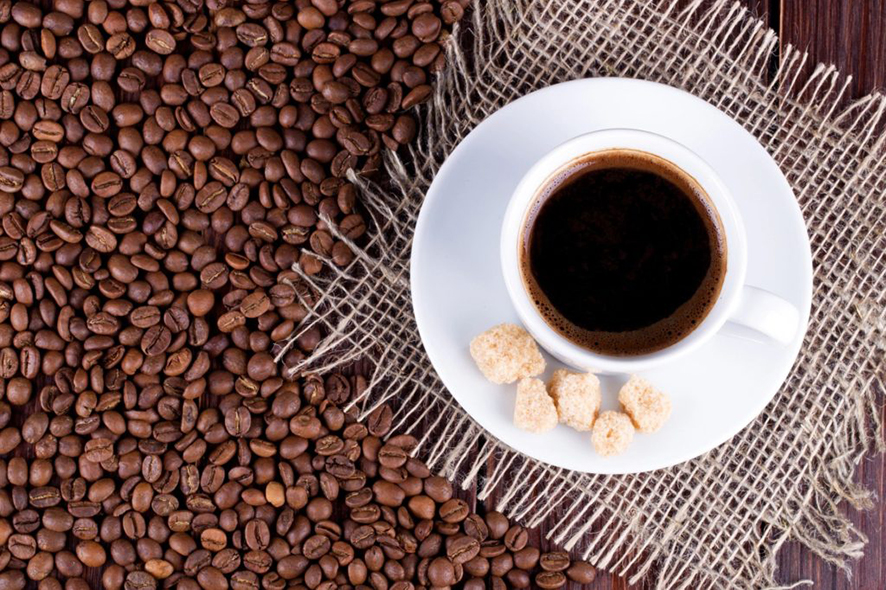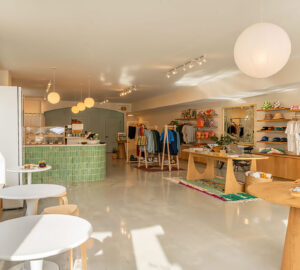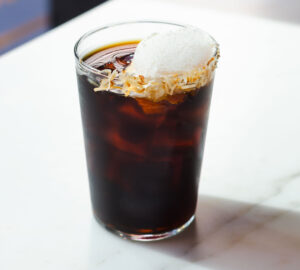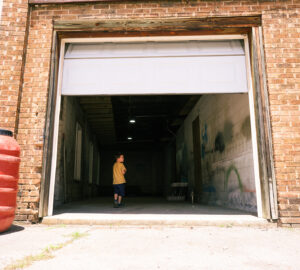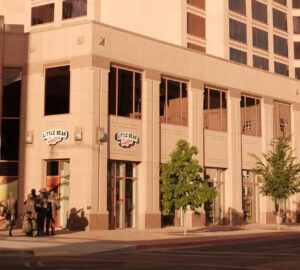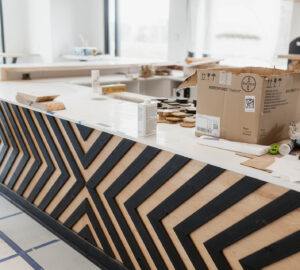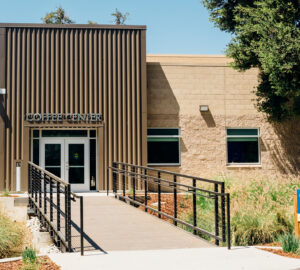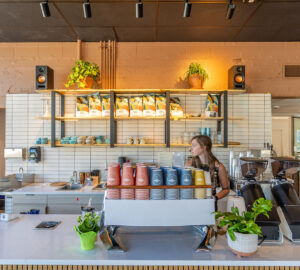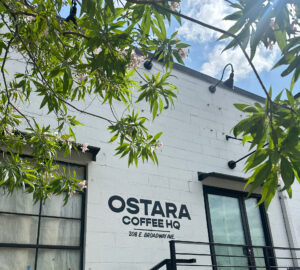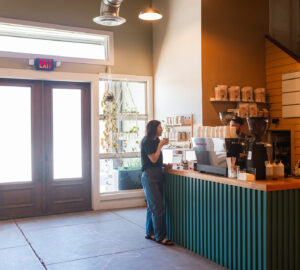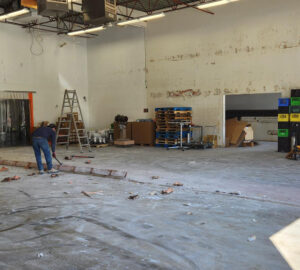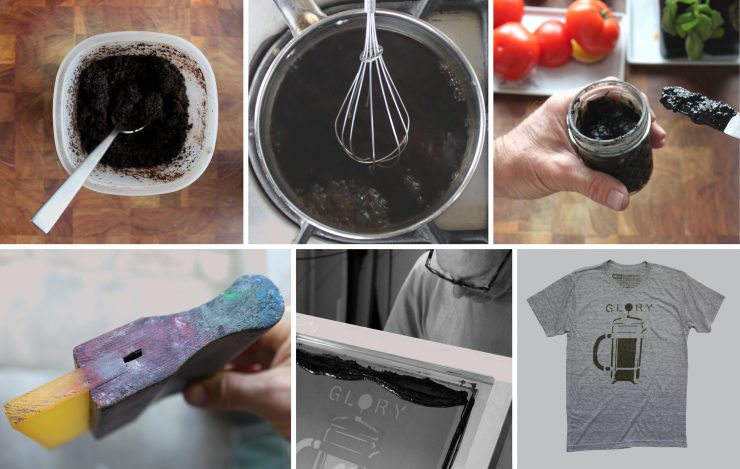
How much coffee waste do you produce in a day? Even the most limited home coffee brewer ends up with a fair amount of leftover coffee grounds, so if you’re a big coffee consumer chances are that by the end of the week you’ve produced a lot.
Used coffee grounds can be repurposed for a variety of things. I was recently visiting someone who had a bowl of them in his bathroom. “My girlfriend likes to exfoliate,” he said laughing when I asked him about it. Of course, not everyone is so committed to upcycling. If you’re good about your coffee brewing process, your spent coffee grains at least make it into the compost. You are nourishing those tomato plants growing in your urban garden aren’t you? Realistically, for most of us, the spent coffee grounds head to the rubbish bin.
But what if there was a way to put them to use in a new and different way? A way that wasn’t composting, exfoliating, or cleaning out your drainpipes? Enter Domestic Stencilworks. Based in San Diego, California, the eco-friendly printing company screen-prints t-shirts with ink made from spent coffee grounds. Because who doesn’t want to wear their love for coffee?
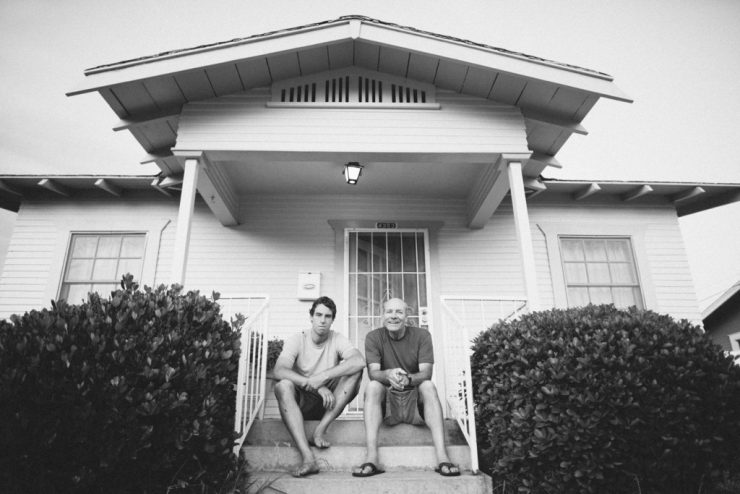
After a 30-year career as a screen printer working on large corporate accounts, John Mohr was burnt out and looking for something new. He and his son-in-law Alex White started experimenting with different print models. White had been dabbling in stencils and spray paint for some time. “I wanted to mesh the style and aesthetic of street art with the production capability of a traditional print shop,” says White. So that is what they did, but beyond printing with stencils they soon started concentrating on natural pigments for screen printing. And what did they start with? Coffee.
“Coffee seemed to be a solid source of natural pigment, so we started with that,” says White. “All of our initial testing was done with the spent grounds that we accumulated from our own French press at home.” The two actually started experimenting with ground, unbrewed coffee first, but soon realized that spent grounds did the job just as well. “So we’ve made sure that brew-able grounds are utilized for actual coffee before they get used for printing,” says White.
How do used coffee grounds go from being a waste product to printed on your t-shirt? They’ve got some personal tricks and secrets to their process, but for the most part it involves mixing the spent grounds with vinegar (as a fixative), then straining the mixture and cooking down the liquid. It is then thickened to mimic screen ink, and voila, they are ready to print. With only half a gallon of used coffee grounds, the pair can print 200 t-shirts.
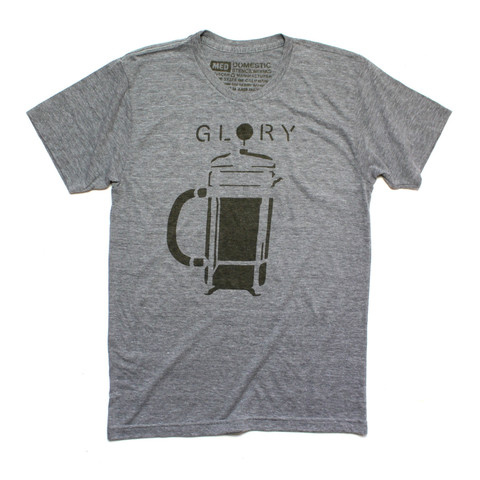
Let’s be honest: screen printing with coffee sounds pretty cool, and as a natural pigment, it’s pretty eco-friendly. But for White and Mohr, it’s also a smart business move. “We use spent grounds because it’s resourceful and it’s good business. Vinegar is A LOT cheaper than quality screen ink and spent grounds are free,” says White. And he is well aware what most people do with their grounds, and is happy to help them out. “Folks are quick to mention that they can be used in compost but realistically over 90% are discarded. If we can utilize a waste product as a major ingredient in our process, it seems like a no-brainer!” says White. That’s why the company also offers to take your used coffee grounds off your hands; send in your own spent grounds and they’ll use them to print your t-shirt. And does the coffee ink last? White assures that, yes, if you follow their washing instructions—cold water, mild detergent, and inside-out, like any good piece of clothing—your coffee tee should endure.
This is a company committed to doing things locally, and as such, they’ve got a few local beloved roasters and coffee shops—White noted that all within a few blocks they’ve got Darkhorse, Coffee and Tea Collective, and their favorite, Caffe Calabria—that they frequent, as well as working with them to get some of their spent coffee grounds. “Shops, roasters, and producers tend to be very connected to their product so getting additional use out of that product is something they respect. Also, they get to expand upon their own story even if it’s just from a merchandising perspective. Being able to say that your tees are made from your actual product after it has been enjoyed is pretty cool,” says White.
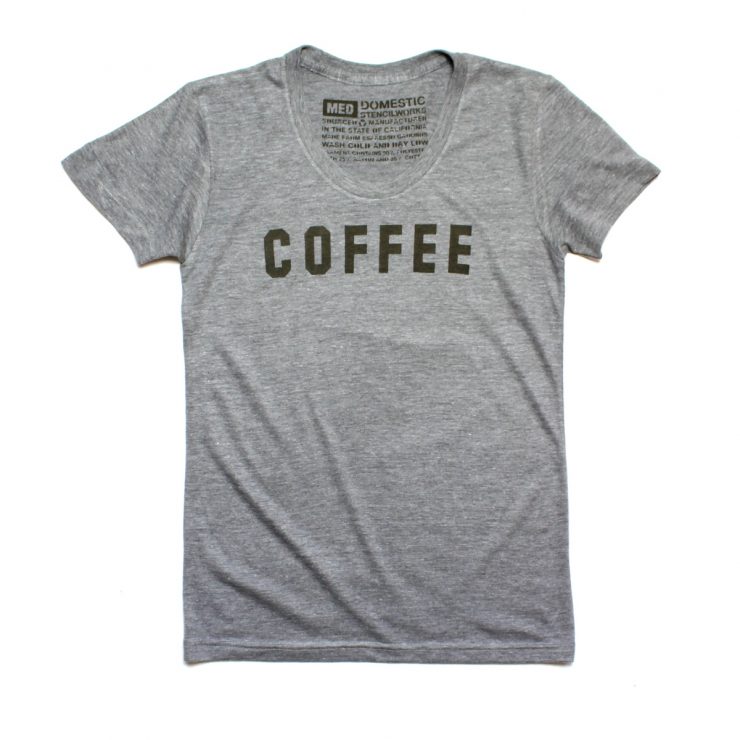
Of course, White is an avid coffee drinker himself, and while he isn’t working directly in the coffee business, his job does involve a lot of coffee—so he kind of has to be. “If we had an aversion to coffee, our job would prove pretty tough because our studio is filled with mixtures of spent grounds and tends to smell like a roaster,” says White.
Want your own shirt printed with spent coffee grounds? Check out Domestic Stencilworks online at www.domesticstencilworks.com.
Anna Brones (@annabrones) is a Sprudge.com staff writer based in Paris, the founder of Foodie Underground, and the co-author of Fika: The Art Of The Swedish Coffee Break, available now from Ten Speed Press. Read more Anna Brones on Sprudge.













